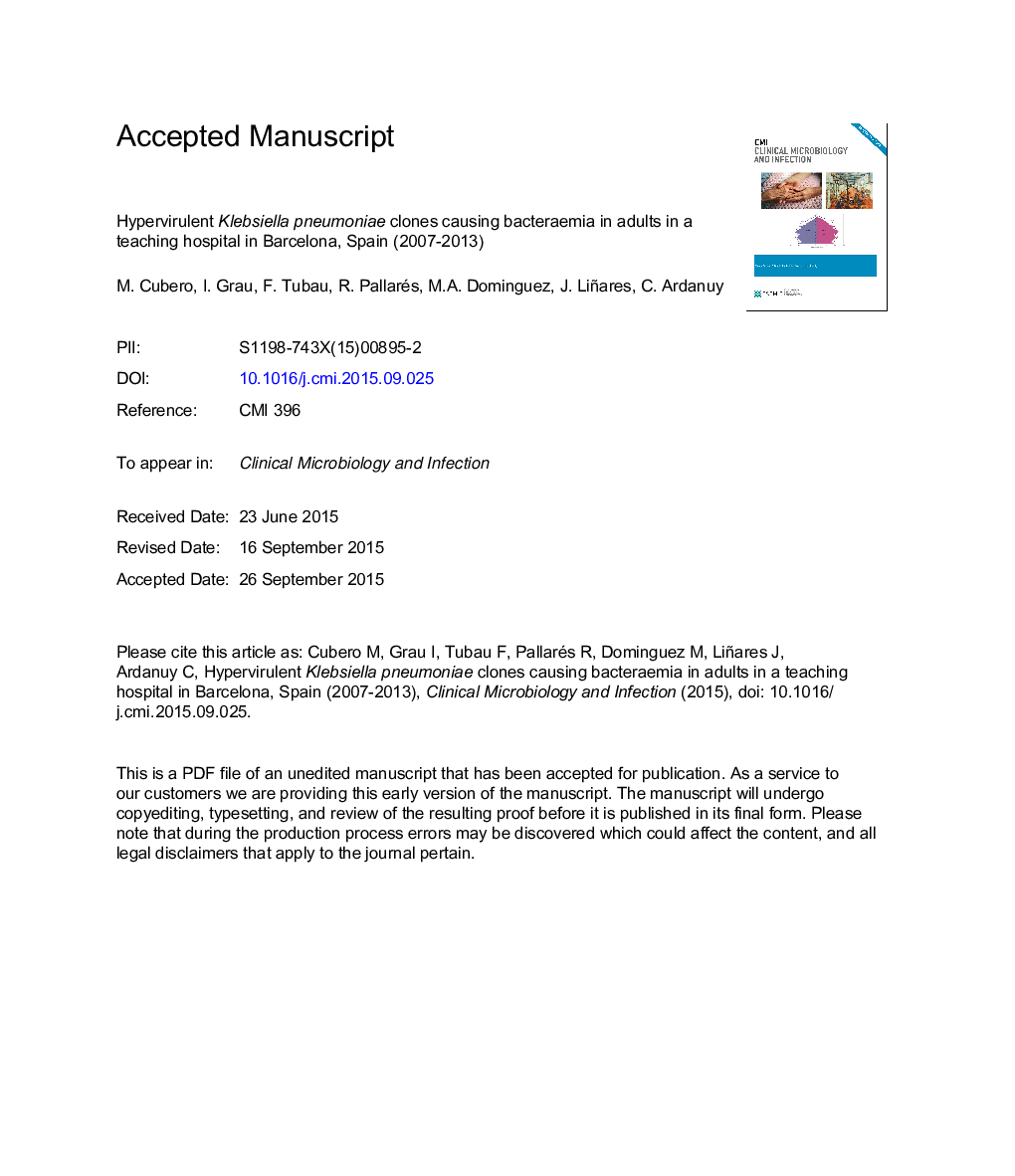| Article ID | Journal | Published Year | Pages | File Type |
|---|---|---|---|---|
| 6129022 | Clinical Microbiology and Infection | 2016 | 23 Pages |
Abstract
Virulent hypermucoviscous Klebsiella pneumoniae strains associated with the magA and rmpA genes have mainly emerged in Asia. We analysed the frequency and the clinical and molecular epidemiology of K. pneumoniae bacteraemia isolates obtained over a 7-year period (2007-2013). Fifty-three of 878 K. pneumoniae invasive isolates (5.4%) showed a hypermucoviscous phenotype (by the string test). Of these, 16 (30.2%) were magA+/rmpA+, 12 (22.6%) were magAâ/rmpA+, and the remaining 25 (47.2%) were magAâ/rmpAâ. After multilocus sequence typing and wzi sequencing, all magA+/rmpA+ isolates were serotype K1 and sequence type (ST)23. Of the 12 magAâ/rmpA+ isolates, nine were K2 (ST380, ST86, ST65, ST25 and ST493), and three magAâ/rmpA+ isolates had the new wzi allele 122, an unknown serotype, and the new ST1013. The remaining isolates, which were magAâ/rmpAâ, showed different serotypes and STs. Patients with magA+/rmpA+ or magAâ/rmpA+K. pneumoniae bacteraemia more frequently had pyogenic liver abscesses (PLAs) and pneumonia than patients with magAâ/rmpAâK. pneumoniae bacteraemia (respectively: 21.4% vs. 8%, p 0.26; and 17.9% vs. 0%, p 0.05). In fact, magAâ/rmpAâ isolates were similar to the those termed 'classic' K. pneumoniae isolates causing bacteraemia, the urinary and biliary tracts being the main foci of infection. In conclusion, hypervirulent clones (CC23K1, CC86K2, CC65K2, and CC380K2) were infrequent among K. pneumoniae isolates causing bacteraemia in our geographical area. A hypermucoviscous phenotype as determined with the string test is not enough to recognize these clones; additional molecular studies are needed. Patients with magA+ and/or rmpA+K. pneumoniae bacteraemia more frequently had PLAs and pneumonia than patients without hypermucoviscosity genes.
Related Topics
Life Sciences
Immunology and Microbiology
Microbiology
Authors
M. Cubero, I. Grau, F. Tubau, R. Pallarés, M.A. Dominguez, J. Liñares, C. Ardanuy,
